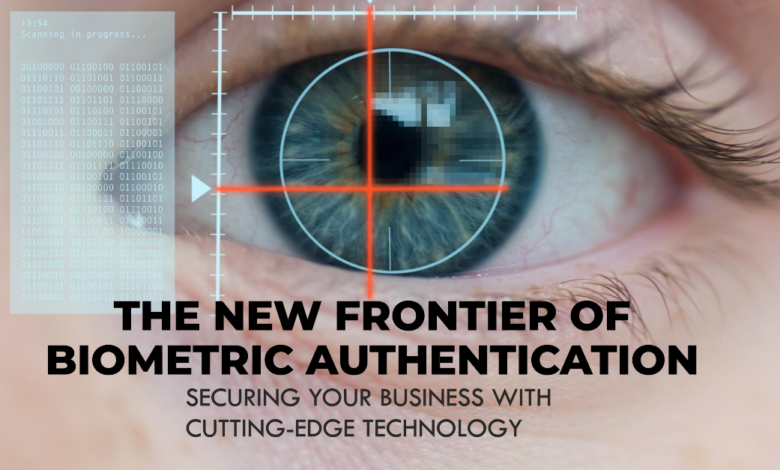The New Frontier of Biometric Authentication in Business Security

In the rapidly evolving landscape of business security, biometric authentication emerges as a beacon of innovation, offering unparalleled precision in access control and identity verification. This technology, which utilizes unique physical or behavioral characteristics for identification, is revolutionizing the way companies safeguard their assets and data. Its adoption signifies a shift from traditional security measures, which often rely on knowledge-based or token-based methods, towards a more secure, user-friendly, and efficient approach. As businesses grapple with the increasing sophistication of cybercrime threats and the need for more robust compliance measures, biometric authentication stands out as a critical tool in their security arsenal.
The appeal of biometric authentication lies in its inherent ability to accurately identify individuals based on their unique biological traits, such as fingerprints, facial features, iris patterns, and even voice recognition. This method not only enhances security by significantly reducing the risk of unauthorized access but also streamlines the authentication process, making it more convenient for users. Natalia Dávila Merlo, Content Marketing Manager at Ling, mentions, “The integration of biometric authentication into our security protocols has not only fortified our defenses but also significantly improved user experience, setting a new standard in our operational efficiency.”
Evolution of Biometric Authentication:
Biometric authentication has come a long way from its early applications in high-security government installations to its widespread use in everyday business operations. Initially, the technology was expensive and complex, limiting its adoption to sectors where security was of paramount importance. However, advancements in technology have made biometric systems more affordable and accessible, enabling businesses of all sizes to implement this cutting-edge security solution. Today, biometric authentication is not just about fingerprint scanners and iris recognition; it encompasses a broad spectrum of technologies, including facial recognition, voice analysis, and even behavioral biometrics, which assess patterns in human activity.
The evolution of biometric authentication is closely tied to the growing need for more secure and efficient identification methods. As digital transformation accelerates, businesses are increasingly vulnerable to cyber-attacks, with traditional password-based security systems becoming easy targets for hackers.Sai Blackbyrn, CEO of Coach Foundation, points out, “The shift towards biometric authentication is a direct response to the inadequacies of traditional security measures. It’s not just about enhancing security; it’s about adapting to the evolving digital landscape.”
Applications in Business Security:
Biometric authentication finds its application in a myriad of business security contexts, from physical access control to digital identity verification. In physical security, biometric systems are used to regulate access to buildings, offices, and restricted areas, ensuring that only authorized personnel can enter. This application is particularly relevant in industries where security is critical, such as finance, healthcare, and government. By replacing traditional key cards and access codes with biometric identifiers, businesses can significantly reduce the risk of unauthorized access and enhance overall security.
In the digital realm, biometric authentication plays a crucial role in protecting sensitive information and transactions. Financial institutions, for example, are increasingly incorporating biometric authentication methods into their mobile banking apps to verify customer identities during logins and transactions. This not only bolsters security but also improves the user experience by simplifying the authentication process. Marley Hayles, Digital Marketing Manager at HomeTree, emphasizes, “The adoption of biometric authentication in our digital platforms has been a game-changer, significantly reducing fraud and enhancing customer trust.”
Benefits of Biometric Authentication:
The adoption of biometric authentication brings a host of benefits to businesses, chief among them being enhanced security. By relying on unique biological characteristics, biometric systems offer a level of security that is inherently more robust than passwords or PINs, which can be easily forgotten, shared, or stolen. This significantly reduces the risk of identity theft and unauthorized access, providing businesses with a more secure foundation for their operations. Furthermore, biometric authentication streamlines the login and access processes, eliminating the need for users to remember multiple passwords or carry physical tokens.
Another significant advantage of biometric authentication is its potential to improve regulatory compliance. Many industries are subject to strict regulations regarding data protection and privacy, and biometric authentication can help businesses meet these requirements by providing a more secure and auditable method of access control and identity verification. Matthew Appleton, e-commerce manager of Appleton Sweets, elaborates, “Integrating biometric authentication has not only enhanced our security measures but also significantly eased our compliance burdens, especially in the context of GDPR.”
Challenges and Considerations:
Despite its many advantages, the implementation of biometric authentication is not without challenges. Privacy concerns are at the forefront, as the collection and storage of biometric data raise significant ethical and legal questions. Businesses must navigate complex regulatory landscapes to ensure that their use of biometric authentication complies with data protection laws and respects individual privacy rights. This requires robust data security measures and transparent policies regarding the use and storage of biometric information.
Another challenge lies in the potential for technological limitations and errors, such as false positives and false negatives, which can undermine the effectiveness of biometric systems. Ensuring the accuracy and reliability of biometric authentication requires ongoing investment in technology and infrastructure, as well as continuous monitoring and updating to address emerging threats and vulnerabilities. Raoul Schweicher, Managing Partner at Msa Advisory, underscores, “While biometric authentication offers immense potential, its successful implementation hinges on addressing the technological and ethical challenges head-on.”
Future Prospects:
The future of biometric authentication in business security looks promising, with ongoing advancements in technology paving the way for more sophisticated and secure systems. Emerging trends, such as the integration of artificial intelligence and machine learning, are set to enhance the accuracy and efficiency of biometric authentication, enabling businesses to stay ahead of cyber threats. Moreover, the growing acceptance of biometric technology among consumers, driven by its convenience and security benefits, suggests that its adoption will continue to rise across various industries.
As we look ahead, it is clear that biometric authentication will play a pivotal role in shaping the future of business security. Its ability to provide secure, efficient, and user-friendly authentication solutions positions it as a key technology in the ongoing battle against cybercrime. However, for its full potential to be realized, businesses must address the challenges associated with privacy, accuracy, and inclusivity, ensuring that biometric authentication is implemented in a responsible and ethical manner.
Conclusion:
Biometric authentication represents a significant leap forward in the realm of business security, offering a powerful tool for protecting assets, data, and identities in an increasingly digital world. Its evolution from a niche technology to a mainstream security solution reflects its effectiveness in addressing the unique challenges of modern business operations. By embracing biometric authentication, businesses can enhance their security posture, improve regulatory compliance, and provide a more seamless user experience. However, the journey towards widespread adoption is not without obstacles, and businesses must carefully consider the ethical, legal, and technical implications of implementing biometric systems. As we navigate the new frontier of biometric authentication, it is imperative that we strike a balance between innovation and responsibility, ensuring that the benefits of this technology are realized while safeguarding individual privacy and rights.



